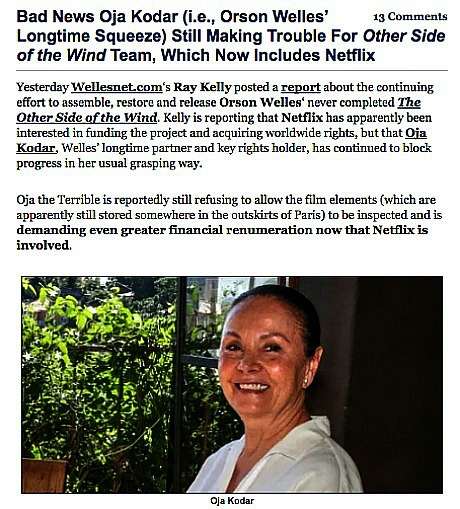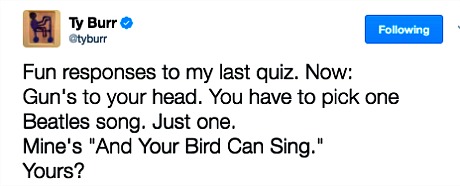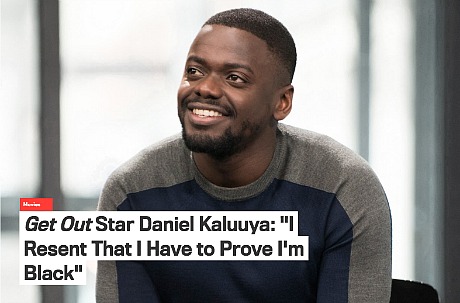TheWrap‘s Sam Frago has written that Edgar Wright‘s Baby Driver “exists in this dreamlike state of ecstasy for nearly 70 minutes, [buth] then there’s a peculiar pivot into conventionality.” And while Variety‘s Peter Debruge has called it “a blast, featuring wall-to-wall music and a surfeit of inspired ideas,” he said “it’s also something of a mess.” How do reviews like this result in a 100% Rotten Tomatoes rating? Obviously something stinks in Denmark.
Day: March 14, 2017
Good Thing Benefits A Bad Person
I reported on 4.5.16 that Netflix had been negotiating “for months” to acquire distribution rights to Orson Welles‘ The Other Side of the Wind, and that the approval of Oja Kodar, Welles’ longtime partner and a key rights holder, was necessary to finalize things. I was told nonetheless that Kodar had “continued to block progress in her usual grasping way.”
But now this odious and grotesque situation has finally come to an end. It was announced today that Netflix has sealed the deal, which can only mean they coughed a lot more dough for Kodar than she was getting before.

I wrote last April that “Oja the Terrible is reportedly still refusing to allow the film elements (which are apparently still stored somewhere in the outskirts of Paris) to be inspected and is demanding even greater financial renumeration now that Netflix is involved.”
This pathetic psychodrama and restoration saga has been going on for a long time, but the first indication that Kodar might be willing to show at least a little consideration for her ex-boyfriend’s legacy came when Doreen Carvajal‘s N.Y. Times story, titled “Orson Welles’s Last Film May Finally Be Released,” popped on 10.28.14.
The piece reported that Kodar, the chief stopper in this situation along with Welles’ daughter Beatrice, had agreed to embrace a certain amount of trust and allow the film to be assembled and restored in good faith. Not really. Oja’s behavior for the last two and half years reportedly veered between the realm of unreasonableness and that of possible psychosis.
MSM Always Exaggerates, Tries To Scare People About Snowstorms
Brooklyn-based Jett says the blizzard that blew through the northeast today was “mild in the city — storms always die over NYC.” Almost always, he meant. I love snowstorms, rainstorms…any disturbance will do. Even though today’s was a bit of a letdown I would’ve loved to have been in midtown Manhattan in my overcoat and cowboy hat.
Goddammit
I don’t like these gun-at-your-head quizzes. Choosing a favorite tune out of dozens or hundreds means you’ll soon hate it from over-listening — great scheme! But for some reason I answered Ty Burr’s quiz yesterday: “Don’t Bother Me.” And if that doesn’t work, I’m partial to “Long, Long, Long,” “For No One” and “I’m A Loser.”

No Missing The Latest Mungiu
I saw Cristian Mungiu‘s Graduation (Sundance Selects, 4.8) in Cannes about ten months ago. The great Mungiu, who shared the Best Director prize last May with Personal Shopper‘s Olivier Assayas, won’t be doing face-time interviews in Los Angeles. (Maybe phoners, I’m told.) My memory’s gone a little stale so I’m catching it again tonight at 7:30 pm.
But I’d see it again under any circumstance. All Mungiu films gain with repeated viewings. I’ve seen Four Months, Three Weeks, Two Days four or five times, and I could watch it again right now.
“Conversation With A Master“, posted from Cannes on 5.20.16:
I spoke this afternoon with renowned Romanian director Cristian Mungiu, whose ethical drama Graduation (a.k.a. Bacalaureat) was universally praised after screening yesterday morning. I called it “a fascinating slow-build drama about ethics, parental love, compromised values and what most of us would call soft corruption.”
We discussed the film’s view of things, which is basically how capitulating to soft corruption can seem at first like nothing but that it can slightly weaken your fibre and make you susceptible to harder forms down the road.
Accepting and living with a certain amount of soft corruption is par for the course in my realm. It greases the wheels in this and that way. If you’re at all involved with the hurly burly, you know the truth of this. “This world is so full of crap you’re going to get into it whether you’re careful or not” — a quote from what film?
I mentioned a story I passed along yesterday about my father having persuaded a Rutgers professor to give him a passing grade despite having failed a final exam, which was definitely a soft ethical lapse. Mungiu smiled and said, “Life is complicated.”
Understanding The Lingo
“When I’m around black people, I’m made to feel ‘other’ because I’m dark-skinned. I’ve had to wrestle with that, with people going ‘You’re too black.’ Then I come to America, and they say, ‘You’re not black enough.’ I go to Uganda, I can’t speak the language. In India, I’m black. In the black community, I’m dark-skinned. In America, I’m British. Bro!” — Get Out star Daniel Kaluuya to GQ‘s Shakeil Greeley in just-posted interview.
Hmmm…what am I allowed to say about shades or degrees of blackness these days? A voice within my system is saying “stop!…don’t say anything at all!” But I can at least say a couple of mild things.

Get Out star Daniel Kaluuya.
If I’m reading the above quote correctly, Kaluuya has had to “wrestle” with black people calling him “too black.” What’s he supposed to say to that? What could he possibly say? What matters to actors is whether casting directors have decided that they’ve “got it” (charisma, relatableness, a steady centered quality) and whether the media regards them as good-looking or not. Kaluuya has nothing to worry about on either score.
Most whiteys understand and respect standard rhetorical limits. They can say “everybody’s everything, baby” but they can’t say “after many decades of life in this country I’ve come to regard American blackness as either a medium-shade deal a la Samuel L. Jackson, Denzel Washington or Chris Rock or a steamed cappuccino thing…Spike Lee, Barack Obama, Jimi Hendrix. So Swiss dark-chocolate guys like Kaluuya…well, they seem less familiar.”
I’m not saying this, mind. I’m not even thinking it. I’m just saying that blacks can say whatever to other blacks, but whiteys have to zip it. If they don’t, the SJW hyenas will rush in and tear them to shreds.
American Poison
American Media tabloids have always been toxic — you’ll literally feel sick if you actually buy the Enquirer or the Globe as opposed to the usual checkout line flip-through. For the last few months they’ve been pushing hard on the “Trump is doing God’s work by cleaning house” narrative — mother’s milk for the dumbfucks. I felt the usual disgust when I glanced at these covers last night inside WeHo Pavilions, but also amusement — they’re still working the “evil Hillary” thing?

